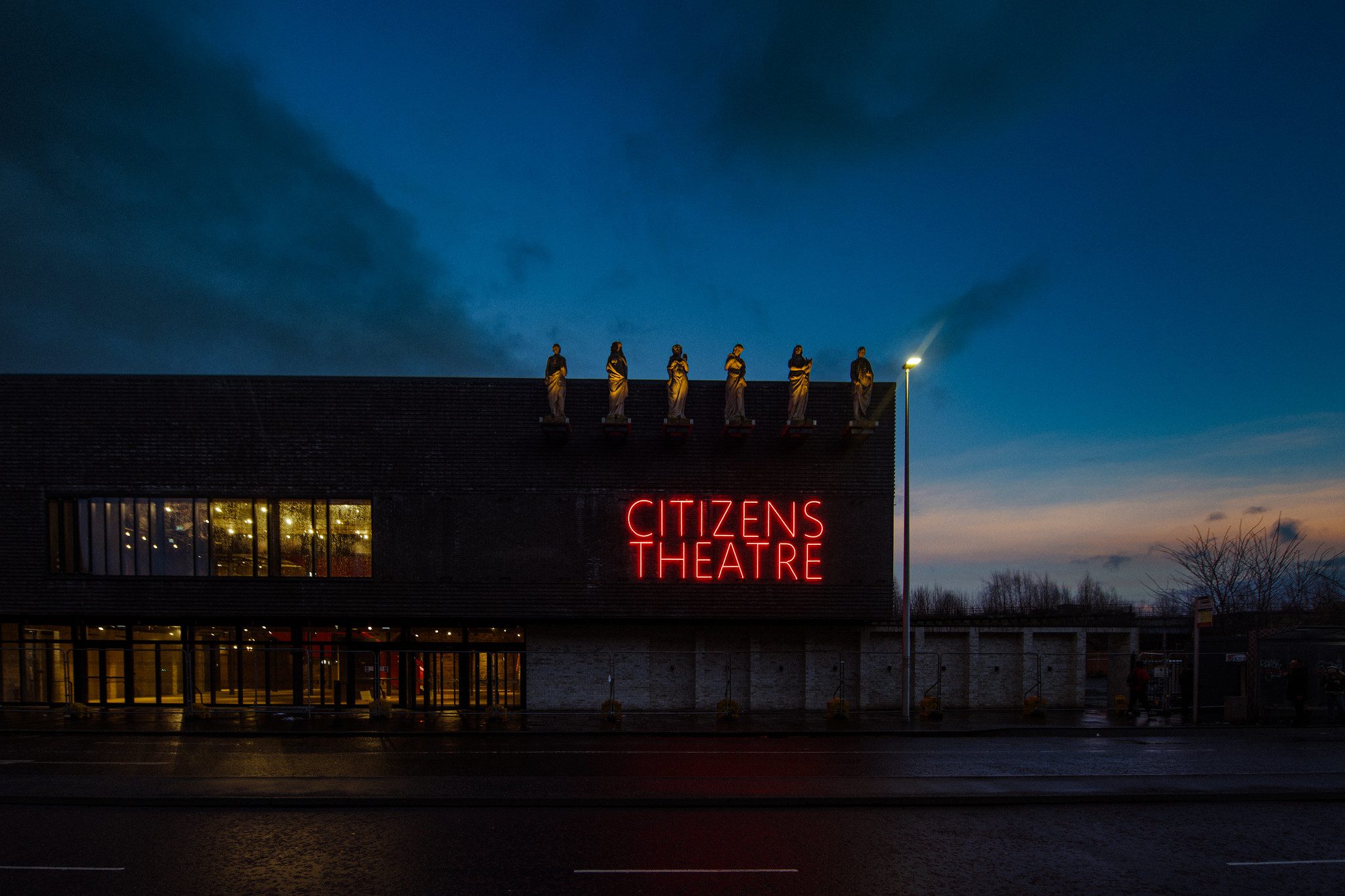- Our Citizens
Meet Denis Murphy, Head of Workshop
Denis Murphy is our Head of Workshop. He’s worked at the theatre for more than 40 years and started out as an usher one night a week. We chatted to Denis to find out more about what his current role involves and what he enjoys most (and least!) about the job.
How long have you worked at the Citizens Theatre?
‘Oh god! I think I started in 1982. I began one night a week as an usher. I’d been working in the day as a photographer, but the job at the Citz felt like a big social and was lots of fun. So, one night turned into two, then three and four, and before I knew it, I was working five or six nights a week.
From usher, I moved onto a role at Stage Door. Then I started doing a bit of work with props and helping on stage. I liked working backstage and I wanted to do more. I got loads of training on the job and it all progressed from there.

My next role in the theatre was as a flyman. I did that for six years. During my downtime, I’d go into the workshop and help out here and there. Eventually I was offered the role of Master Carpenter – and that’s what I do now, except my job title has changed to ‘Head of Workshop’. I’ve been in this role for around 15 years.

What attracted you to the role at the Citz?
I’d always known the Citz as I used to live in the tenements above the theatre. As kids we’d run about on the roof and play tig. We’d also make dens out of any old scenery that was being chucked out. It was like a big adventure playground! (I remember the flymen used to shout at us out the window. Back then I’d never thought I might end up a flyman myself!)
Quite a few of my family members got jobs there – including my three sisters. It sounded like a nice place to work. And when I joined, everyone backstage was really friendly.
Can you tell us a bit about your current role – what does it involve?
I build the sets so it’s my job to turn the designer’s ideas into reality.
First, the designer will share a white card design. This is a tiny version of the stage with a movable set. I‘ll work out how much it will cost to build and make sure it can be achieved within the budget. It can be a bit of a compromise to come up with solutions – sometimes it’s about finding different materials or scaling something back. Where possible, we consider if any old sets can be reused. The designer then comes back with a complete model box, all painted up, and we work from that.
Working on different shows and with different creatives means there is plenty of variety – it’s always a wee bit different and there’s always lots of problem solving. You’ll be scratching your head at the start thinking ‘how will I get that done?’ But you find a solution and you learn different tricks along the way.



Most rewarding and most difficult things about the job?
Most rewarding is the feeling of satisfaction you get. It’s great standing backstage and looking at the finished set through a monitor and it is identical to the original model box. Thinking ‘I nailed that’ – especially when it seemed impossible back at the first production meeting.
The most difficult thing is the timescales are so tight. It can be stressful getting everything ready on time – and the deadline of a live show means there’s no wiggle room. Right up to final call on opening night, you’ll see people running about with cans of spray paint, doing those last-minute touches!
Do you have a favourite show that you’ve worked on at the Citz and why?
I’ve got two:
- Giles Havergal’s production of ‘Travels with My Aunt’ in 1990 – it was absolutely fantastic and so funny. As flyman, I had to watch the whole thing from above and still thought it was brilliant from that angle!
- I also loved the 2012 production of ‘Krapp’s Last Tape’ directed by Dominic Hill. Gerard Murphy starred, and his performance really stands out – he was a great actor.

Advice for people who’d like a career in theatre?
If you can, get some experience across departments. There are lots of different jobs in the theatre that you might not even know about! I actually did a Stage Management course at the Royal Conservatoire (formerly RSAMD) before I realised that role wasn’t for me, and I’d rather be in the workshop.

What are you most looking forward to when the building reopens?
Getting to see old faces! We’ve had a reduced programme during the redevelopment so fewer opportunities to work with different freelancers. It’ll be exciting to be back up to full capacity.
It’s quite special that everything at the Citz is done in the one building (costumes are made there, sets are built, actors rehearse etc). So, it’ll be nice to all be back together under one roof, busy working on shows and to feel like one big team again.

- Our Citizens



